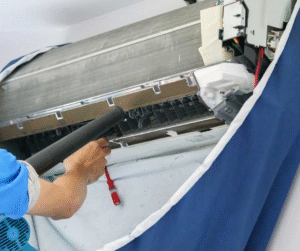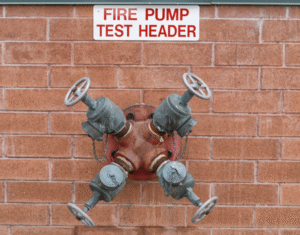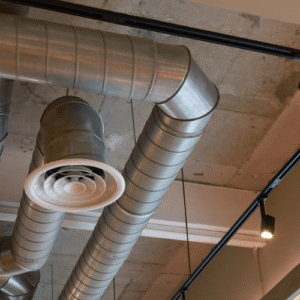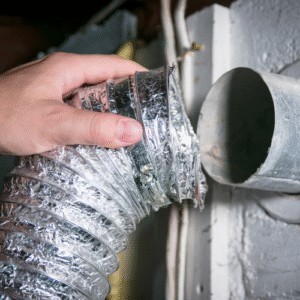Ensuring a safe and clean atmosphere in commercial kitchens involves more than simply keeping countertops pristine and food kept correctly; it also includes components that are sometimes disregarded but are very important, such as the kitchen extraction system. Knowing the basics of kitchen extraction cleaning before your next fire safety or hygiene inspection may help you avoid significant fines, lost productivity, and major health and safety hazards. The essential elements of extraction cleaning that each commercial kitchen operator should be aware of are described in this article.
Why It’s Crucial to Clean Purification
Heat, steam, smoke, and grease that are released into the air when cooking are all eliminated by a kitchen’s extraction system. Grease buildup in these systems over time is not only unsanitary but also a serious fire hazard. Grease buildup may readily ignite in the extraction system, which is where many kitchen fires start and swiftly spread throughout the building. Frequent extraction cleaning of the kitchen lowers these hazards and guarantees that your kitchen is secure, effective, and complies with UK laws.
Expert Extract Cleaning Procedures
Appropriate extraction Cleaning a system involves much more than just wiping the surface. Among them are:
- Comprehensive post-cleaning reports that demonstrate compliance with photos.
- It is necessary to clean the roof, ventilation, filters, and fan modules.
- Eliminating baked-on contaminants with industry-grade equipment and cleansers.
Experts maintain every component of the system, particularly the inaccessible inside ductwork, using specific equipment and cleaning solutions. The cleaning procedure is comprehensive, effective, and made to satisfy modern UK regulations when you work with a reputable service provider like ProVent Compliance.
Regulation and Legal Regulations
In the UK, rules pertaining to extraction system upkeep and hygiene must be followed by all commercial kitchens. The primary rules guiding this are as follows:
- Proper fire risk evaluations and steps to mitigate identified hazards, such as keeping extraction systems clean, are required under the Regulatory Reform (Fire Safety) Order 2005.
- Clauses requiring the extraction system to be cleaned regularly are frequently included in insurance plans.
- The Building Engineering Services Association’s (BESA) TR19® standards, establish the standard for ducting cleanliness.
Your kitchen may be closed, your insurance claims may be denied, or you may even be subject to legal action if you don’t follow the proper extraction cleaning protocols.
What Takes Place When Someone Does an Inspection?
Officers will evaluate the entire conformity of your kitchen, including the condition of the drainage system, during a fire safety or health care assessment. They might:
- Examine your cleaning agreements and fire risk evaluations.
- Look for any obvious oil accumulation.
- Ask for paperwork and evidence of routine cleaning.
An extraction system that is well-maintained and recorded will benefit your company and lessen the possibility of legal action.
When Is the Best Time to Schedule Cleaning?
How frequently your kitchen is used determines how frequently you need to have it extracted and cleaned:
- Excessive use (12–16 hours daily): every three months
- Use in moderation (6–12 hours daily): every six months
- Light usage (two to six hours a day): Every year
Setting up a cleaning routine based on how often your kitchen is used is essential to being ready for inspections and running your business safely.
The Repercussions of Ignorance
There are severe repercussions if kitchen extraction cleaning is neglected, including:
- Health risks: Air quality and food safety may be impacted by unclean systems that house germs and mould.
- Fire risks: Fires are fuelled by accumulated grease, especially in high-heat cooking settings.
- Problems with insurance: In the event that carelessness is demonstrated or cleaning records are not current, claims may be denied.
- Legal sanctions: There may be penalties, legal action, or even jail time for breaking fire safety rules.
In summary, neglecting to clean is significantly more expensive than performing routine maintenance.
How to Pick the Best Cleaning Partner
Not every service provider provides the same degree of compliance and quality. Consider the following factors while choosing a cleaning service:
- Do they provide planned maintenance to guarantee continued adherence?
- Are their technicians familiar with extraction methods used in commercial settings?
- Do they offer comprehensive certifications and reports following cleaning?
- Do they comply with TR19®?
ProVent Compliance is an expert in offering comprehensive kitchen extraction cleaning solutions in the UK. Our team uses industry-approved techniques and complies with all relevant regulations to ensure your kitchen is ready for any inspection.
Final Remarks
Although kitchen extraction systems are frequently hidden, people should always be aware of them. Maintaining a safe, ethical, and effective kitchen requires routine, expert kitchen extraction cleaning. Maintaining a proactive maintenance schedule is more crucial than ever as insurers tighten their standards and inspections get more precise.
A clean, certified, and inspection-ready filtration system is essential whether you run a business canteen, a popular restaurant, or a café. For more information on how ProVent Compliance can help your kitchen meet safety and operational requirements, get in touch with us.
Do you seek a trustworthy extraction cleaning partner?
For a free quotation or to arrange a site evaluation, get in touch with ProVent Compliance right now. At every stage, we are there to assist you in achieving your compliance objectives.






